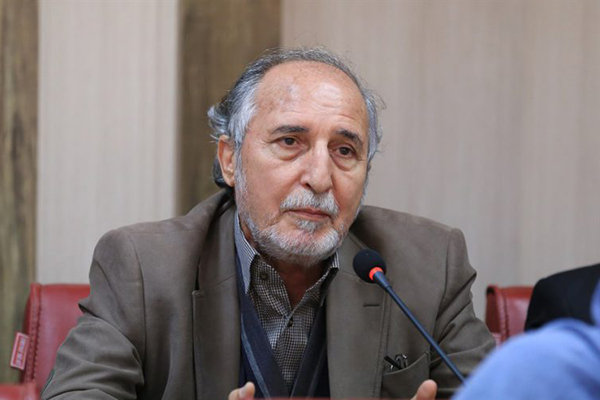The “Ethics and Artificial Intelligence” panel was held on the sidelines of the “Information Sciences and Artificial Intelligence” event at the National Library of Iran with the presence of “Mehdi Mohsenian-Rad”, professor of all communications. In this session, he discussed advanced technology trends, the effects of artificial intelligence on communication, and ethical challenges in scientific research. This conversation is an analysis of the new world of communication and the ethical challenges we are in.
Beginning from the global village to artificial intelligence
Mohsenianrad said about technological advances and its impact on human communication: “New phenomena in the field of technology, especially in the electronic world, have brought about a great transformation in human communication. If we look at its history, we see that from the past decades, from 1340 to 1350, when I became interested in journalism and media, no one could have imagined that what is happening today in the world of communication was possible. At that time, even predictions like the one made by Ernst Marshall about the global village seemed far-fetched. But now, we live in a world where those predictions have come true.”
He also pointed out the importance of digital media and artificial intelligence in the formation of new relationships between humans and information: “Today’s artificial intelligence can simulate all human senses except the sense of taste. These developments in the field of communication have been so fast that predictions about them seemed far-fetched even five years ago. By 2030, simulating the sense of taste will become a reality. What we are witnessing today is a revolution in the way information is produced and consumed.”
Effects of artificial intelligence on language and culture
Prof. Mohsenian-Rad went on to discuss language and culture in the digital age: “Despite technological advances, different languages and cultures still play an important role in the world of communication. In the future, artificial intelligence will allow us to receive messages in any language and accent. These changes will especially affect the reduction of English language dominance and the strengthening of other languages. This process will eventually lead to the globalization of cultures and languages, but the important point is that this evolution must be accompanied by the preservation of cultural and linguistic identities.
He then discussed ethics in scientific research in the digital world and said: “Today, we live in a world where research ethics has become more important, especially in the digital world. Excessive use of virtual space by researchers instead of field interactions and data collection in traditional ways is one of the main concerns.
Mohsenian continued: “In many researches, it is observed that researchers prefer to use online resources instead of going to research fields. On the one hand, this work leads to a decrease in the quality of data, and on the other hand, it can violate people’s privacy.”
Ethical criteria in scientific research
Referring to his concerns about the use of personal information in cyberspace, Mohsenian Rad added: “In the world of social and human research, the truth should always be a priority. In researches related to people and different cultures, researchers must collect data accurately and in compliance with ethical principles. Unfortunately, in some cases, misuse of personal information and violation of people’s privacy are observed in scientific research. Meanwhile, using information without people’s permission can lead to serious problems.”
In the end, he pointed to future developments in the field of communication and scientific research: “The world of communication and scientific research is still evolving. “With new developments in artificial intelligence and other technologies, researchers can easily obtain more information.”
Mohsenianrad added: “It is important that these developments are accompanied by observing moral principles and protecting people’s rights. Especially in developing countries, problems such as corruption and misuse of information can be a serious threat. Therefore, we should always approach the facts in our research and avoid any manipulation of information and truth.”
RCO NEWS














